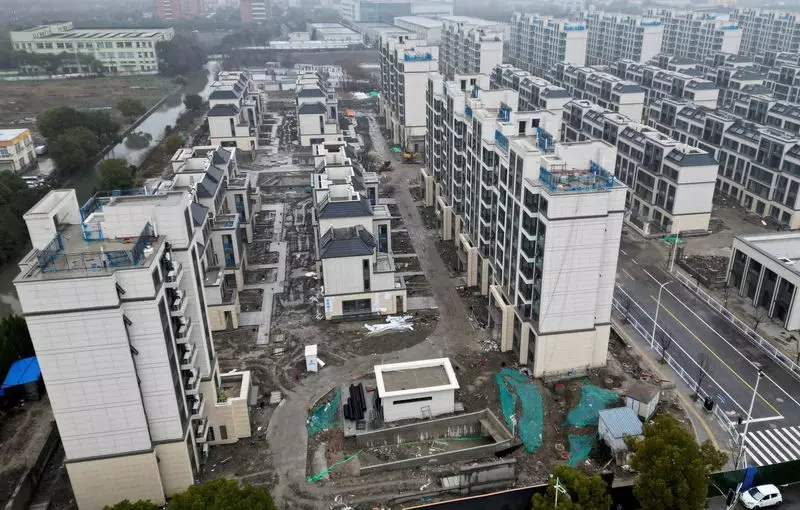China’s real estate sector, once a cornerstone of its economic growth, is facing significant challenges, prompting the central bank to intervene with new policy measures. With the economy exhibiting signs of a slowdown and property sales plunging, the People’s Bank of China (PBOC) recently announced strategic adjustments aimed at alleviating financial pressures for homeowners and stimulating market activity. These measures include mandated reductions in mortgage rates, signaling a crucial step in addressing the broader economic impacts stemming from a faltering property market.
In a bold move, the PBOC has instructed commercial banks to decrease interest rates on existing mortgage loans by at least 30 basis points below the Loan Prime Rate (LPR), the benchmark rate that governs such loans. This is projected to result in an average cut of around 50 basis points across the board. This initiative is part of a sweeping suite of policies devised throughout 2023, aimed at reviving a sector suffering from declining buyer interest and tightening liquidity. As part of this broader effort, local governments in pivotal cities like Guangzhou, Shanghai, and Shenzhen are also relaxing restrictions on home purchases, decreasing downpayment requirements for first-time buyers to as low as 15%.
Despite these concerted efforts, the effectiveness of the stimulus measures has yet to be fully realized. Statistics reveal a disheartening trend: new home prices experienced the steepest decline in over nine years as of August, with property sales down by 18% during the first eight months of 2023. While the new policies aim to ease the burden on existing homeowners and encourage spending, the real estate market remains sluggish. Buyers are still hesitant, largely due to uncertainties about future price stability and economic conditions. The reduced rates may create short-term relief but might not be sufficient to fundamentally change market sentiment.
The PBOC’s statement highlighted the need for “urgent adjustments” to the current mortgage pricing mechanisms which, in its view, are misaligned with the evolving dynamics of supply and demand in the real estate market. The pressure on existing high-rate mortgages has led homeowners to pay off loans prematurely, thereby restricting their ability to spend on other consumer goods and services. With the value of outstanding individual mortgages declining, it’s clear that consumer behavior is heavily influenced by ongoing economic uncertainties.
Adding more complexity to this situation, previous mortgage relief efforts were primarily geared towards new buyers, often leaving long-time homeowners at a disadvantage. This has contributed to mounting frustrations among families who feel caught in a financially constrictive environment, despite apparent government support for the sector.
The PBOC’s actions resonate not just in the housing sector but will likely also influence the broader Chinese economy. By extending supportive measures for real estate developers through loans and credit facilities, it underscores a commitment to stabilize an essential economic driver. However, this can also lead to moral hazard, where developers might become overly reliant on government assistance instead of making necessary adjustments to their business models.
While policymakers hope that easing restrictions and lowering mortgage rates will stimulate buyer confidence and increase property transactions, stakeholders must remain vigilant about the unintended consequences of such measures. If implemented improperly, these interventions could further exacerbate systemic issues within the real estate market, leading to long-term detriments for the economy as a whole.
As China stands at a critical juncture, the central bank’s latest mortgage policies reflect a prioritization of stabilizing the ailing property sector amidst broader economic challenges. While these measures offer a glimmer of hope for revitalizing housing sales and boosting consumer confidence, their actual impact remains contingent on a host of variables, including market response, economic stability, and consumer sentiment. Moving forward, it will be essential for policymakers to monitor these developments closely and remain adaptive to the evolving landscape.

